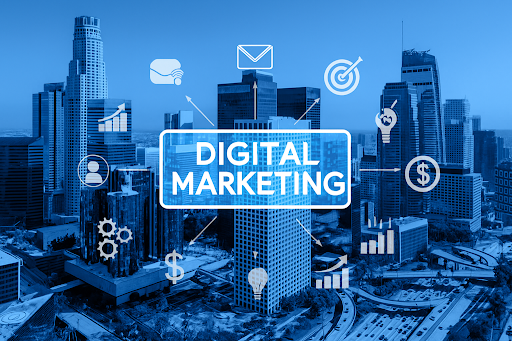Why Email Marketing Remains a Powerful Tool in the Digital Marketing World

Email marketing has changed and developed to stay competitive in the rapidly evolving digital industry. Even with the rise of influencer marketing, social media, and advanced advertising algorithms, email is still a key component of digital marketing plans. It is one of the best instruments for achieving return on investment (ROI) and is also reasonably priced due to its capacity to provide targeted audiences with individualized, direct contact. Find out more about why email marketing is still so successful in the digital age.
Targeted Communication Builds Stronger Engagement
The capacity to effectively segment and target consumers is one of email marketing’s biggest benefits. Based on user preferences, demographics, past purchases, or behavioral data, marketers can target particular groups with their messaging. Receivers are guaranteed to receive content that is helpful and relevant to them thanks to this type of segmentation.
The Strength of Permission-Based Marketing
Email marketing is a permission-based communication method, as opposed to invasive kinds of advertising. You can tell that recipients are interested in what you have to offer since they have either opted in through a website, a promotion, or a subscription form. A foundation of trust between the subscriber and the brand is established by this dynamic.
Additionally, using permission-based marketing increases the chance that your email campaigns will be accepted and read rather than ignored or reported as spam. An email list can be one of a company’s most important assets if it is managed well. Email allows you to communicate directly with your audience, unlike social media platforms, where reach is determined by algorithms.
Reaching Decision-Makers Through CEO Mailing Lists
Targeting decision-makers is one of the most important B2B email marketing strategies. Your reach can be greatly increased by gaining access to a CEO mailing list. When it comes to establishing connections, implementing new technology, or making major deals, CEOs frequently have the last say.
It is not always effective for a business to target a large audience while pitching a high-value service, product, or solution. Rather, by targeting CEOs, you raise the possibility that your message will be viewed by someone who has the financial means and the power to take action. Marketers may get straight to the top by avoiding gatekeepers with a carefully designed CEO mailing list.
However, a complex technique is necessary to use this strategy effectively. Emails should be brief, considerate of the recipient’s time, and value-oriented. The content should offer insights or solutions relevant to that executive’s problem concerns, and the subject lines should be interesting without being spam. When used properly, this approach can lead to profitable opportunities that might not otherwise be available.
Automations That Drive Results
Another important component that contributes to this channel’s strength is email automation. Marketers can use automation technologies to set up processes that send emails in response to certain causes, such as welcome sequences, cart abandonment, re-engagement campaigns, or follow-up emails after a purchase.
The right message is delivered to the right person at the right time thanks to these automated workflows, which also save time. As an example, an automated sequence might offer a product review or discount voucher to someone who repeatedly visits a product page but doesn’t make a purchase in order to encourage them to do so.
Without a large investment, it is challenging to duplicate this kind of intelligent and responsive communication through other digital means. Small and medium-sized organizations may now use this kind of automation thanks to email marketing tools like HubSpot, Mailchimp, and ActiveCampaign.
Nurturing Talent Acquisition Through HR Contacts Database
When it comes to hiring and employer branding, email marketing has been particularly helpful in connecting with human resources professionals. Recruitment agencies, B2B service providers, and corporate solution suppliers can establish direct connections with the people in charge of hiring, training, and organizational development by using an HR Contacts Database.
For businesses that provide SaaS platforms for workforce analytics, training modules, or employee onboarding, this becomes essential. These companies can deliver customized campaigns to HR professionals instead of depending only on cold calls or digital advertisements. These mailings may contain webinars, whitepapers, or case studies that highlight their usefulness.
Data drives the HR landscape, and HR managers are constantly searching for solutions to make their work more efficient. Your message will be seen by people who are actively looking for better solutions if you approach them through a well-maintained HR contacts database, converting cold leads into warm prospects.
High ROI with Low Overhead
One of the most economical marketing strategies is email marketing, which is constantly ranked as such. Several industry surveys indicate that, depending on the industry, email generates an average return of $36 to $42 for every $1 spent. This high return on investment is particularly attractive to startups and small enterprises with tight finances.
It is not necessary to invest in costly media buys or elaborate production in order to create an email campaign. Even small teams may create campaigns that generate significant revenue and growth if they have a solid plan, high-quality content, and a well-maintained subscriber list. Email marketing is a useful tool for companies of all sizes because of its scalability.
Building Brand Credibility and Thought Leadership
Email is a very effective way to build a reputation and authority in your field. Frequent newsletters, thought leadership articles, and email-shared special material help people remember your brand. Emails are retained, shared, and frequently referred to again, unlike short-lived social media posts.
Your emails become more than simply marketing when they are used to share insightful information; they become a reliable source. For long-term brand positioning and client retention, email’s relationship-building component is essential. Businesses that regularly educate and inform their audience through email build trust that goes beyond competition based on pricing.
Conclusion:
Email marketing continues to prove its worth by providing quantitative, cost-effective, and customized communication that produces tangible outcomes. Because of its versatility, direct reach, and capacity to foster enduring relationships, it is an essential component of any digital marketing plan.



